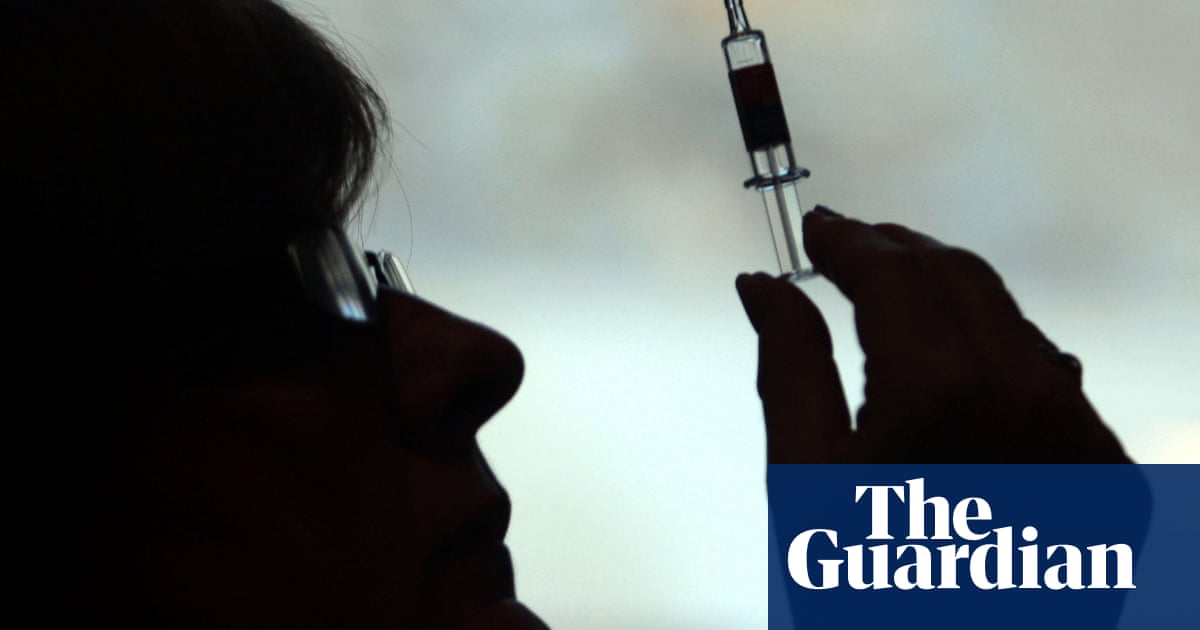Doctors have begun trialling the world’s first vaccine against the vomiting bug norovirus in the hope the jab could bring huge health and economic benefits.
Norovirus causes sickness and diarrhoea and can spread very rapidly between people who are in close contact, with outbreaks often occurring in hospitals, care homes, schools and nurseries.
While most people recover within two to three days, the virus can be serious, particularly for the very young, elderly or people with a weakened immune system.
Dr Patrick Moore, a GP and national chief investigator for the trial in the UK, said that at present there were no approved vaccines for norovirus in the world, while people who become very ill were simply given intravenous fluids.
Moore added that the burden of the bug was huge, with about 685m cases and 200,000 deaths globally each year. In the UK it is thought there are about 4m norovirus cases annually, with 12,000 hospitalisations a year in England alone.
“In the UK, norovirus is estimated to cost about £100m annually to the NHS [and] if you take into account lost earnings, that’s about £300m,” Moore said.
Called Nova 301, the phase 3 clinical trial is to run for two years, and will enrol 25,000 adults – with a focus on those over the age of 60 – from countries including Japan, Canada and Australia.
In total, 27 NHS primary and secondary care sites in England, Scotland and Wales will be involved in the trial, with about 2,500 participants to be recruited from late October. The team added they will also be using mobile units to make it easier for people to take part.
The British arm of the study is part of the 10-year Moderna-UK Strategic Partnership and involves a collaboration between the National Institute for Health and Care Research (NIHR), the Department of Health and Social Care (DHSC), the UK Health Security Agency (UKHSA), and the pharmaceutical company Moderna, which is producing the vaccine.
Within the trial, half of the participants will be randomly allocated to receive the new vaccine, and the other half will receive a saline shot as a placebo.
The norovirus vaccine is based on mRNA technology – an approach used by companies such as Moderna and Pfizer/BioNTech in the development of their Covid jabs.
Such vaccines work by introducing a single-stranded molecule – mRNA – into human cells. The mRNA carries instructions that can be used by machinery within these cells to make proteins associated with the virus. These proteins then trigger the body’s immune system, providing protection against a future encounter with virus itself.
In the case of the new jab, the mRNA carries instructions for making the protein coat of three different types of norovirus, giving rise to the formation of harmless virus-like particles which can trigger the production of antibodies.
after newsletter promotion
While the team said earlier trials of the vaccine have shown it generates a strong immune response in humans, the new trial is designed to explore whether the jab is effective against the virus itself and, if so, how long protection lasts.
“At least 65% [efficacy] or higher is what we would consider to be clinically meaningful,” said Dr Doran Fink of Moderna.
Should the norovirus jab prove successful, the company expects to submit a marketing application to regulators in 2026, with the review process expected to take up to a year. Further trials would also be carried out in teenagers and younger children.
Prof Saul Faust, of the University of Southampton and NIHR Vaccination Innovation Pathway co-clinical lead, added a successful vaccine would help keep care homes running as normal so people can visit their loved ones, while Moore said it will help prevent those who are frail from becoming frailer.
“We wouldn’t be doing this sort of trial at this sort of pace if it wasn’t going to benefit the individuals themselves,” Faust said.

